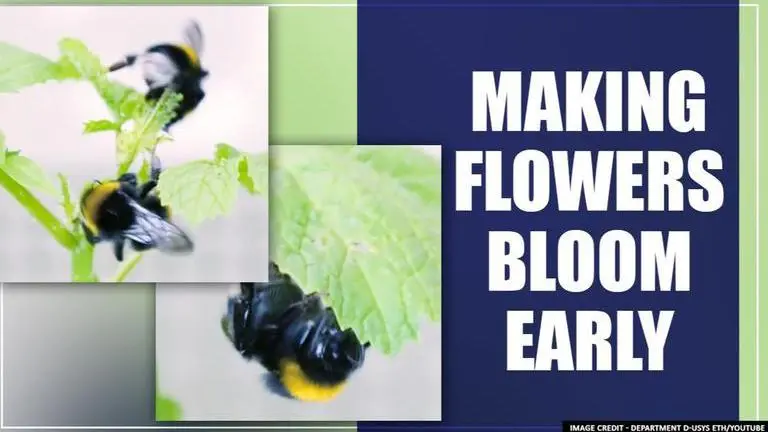Updated 22 May 2020 at 20:01 IST
Bumblebees bite holes in leaves to accelerate plants for flower blooming: Study
Plants accelerate production of new flowers when nibbled to provide pollen, the only source of protein supply for the Bumblebees as they bloom 30 days earlier.
- Science News
- 2 min read

A study published in the journal Science as of May 21 revealed that the bumblebees force the plants to bloom its most nectar and pollen flowers early by biting and punching the holes in the leaves. Using their mouth to snip little confetti bits out of plant foliage, the bumblebees adopt the clever gardening technique as they forage for food in the gardens.
Plants accelerate the production of new flowers when nibbled to provide pollen, the only source of protein supply for the bees as they bloom 30 days earlier, as per the study. Chemical ecologist and entomologist at ETH Zurich, Consuelo De Moraes, was quoted saying that this behaviour of foliage biting gets more common and intense in bumblebees when there’s a pollen shortage.
Experiments conducted by the scientists show that mustard and tomato plants nibbled by Bombus Terrestris, a species of the bumblebees bloomed earlier than unbitten plants by several days or even weeks, De Moraes added. However, according to the study, the bloom time dawning earlier than scheduled could be a lifesaver for the bee community. When trying to build the colonies in early spring, these bees rely on the flower pollen as a protein source for raising the infant bees.
Advertisement
Bumblebees sip on flower nectar
An ecologist at France’s National Institute for Agricultural Research in Versailles-Grignon, Foteini Paschalidou, was quoted saying that while she experimented the project, having caged the B. Terrestris bees indoors, she got worried with the bees’ behaviour. Later, the scientists tried to establish a link between leaf biting and pollen shortages by running a caged-bee test, as per the study. It was found that after 3 days of being trapped with non-blooming plants, the bumblebees poked holes in foliage.
Advertisement
Further, the tests done later on the roof of the lab building with the bees free to seek flowers in rooftop planters projected similar behaviour. A researcher at the University of Sussex in England, Dave Goulson, said in the published study that B. Terrestris cuts holes in leaves in the outer wall of a flower for a sip, rather than groping for nectar-like the other bees in the community.
Published By : Zaini Majeed
Published On: 22 May 2020 at 20:01 IST
